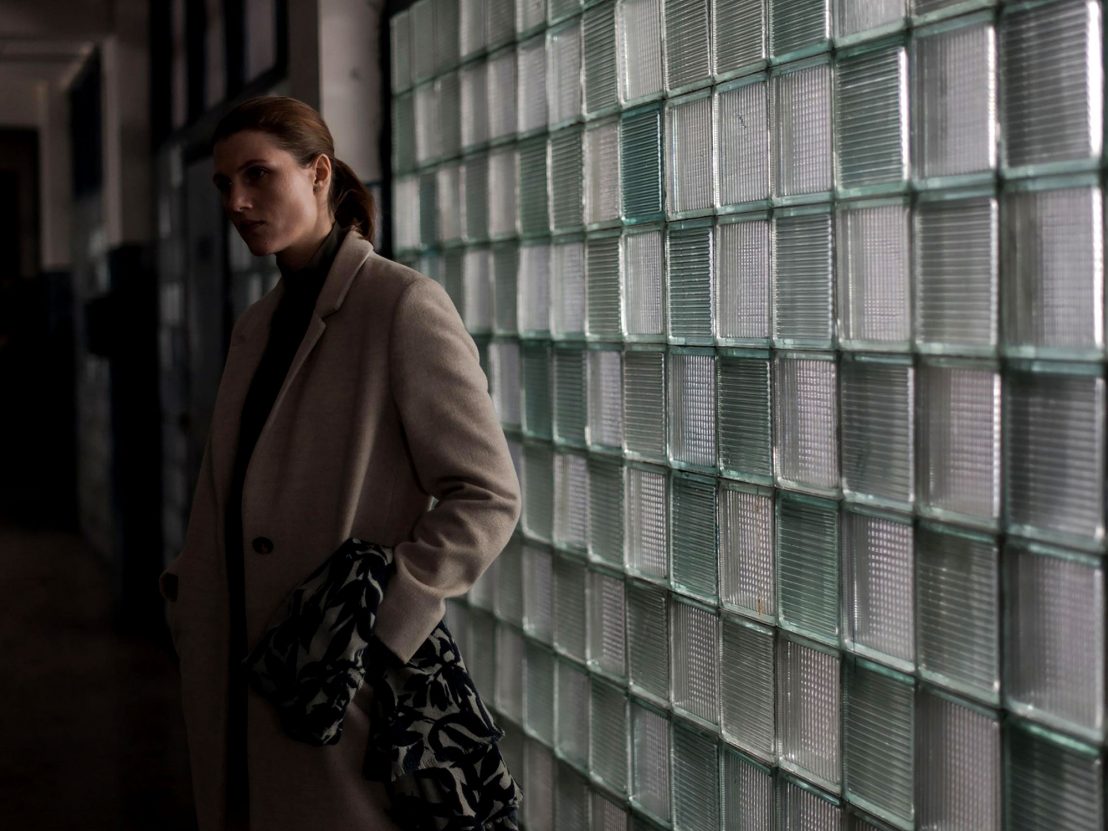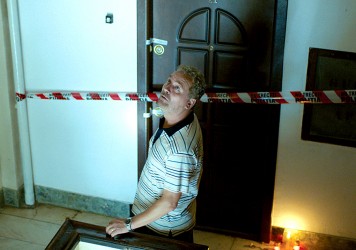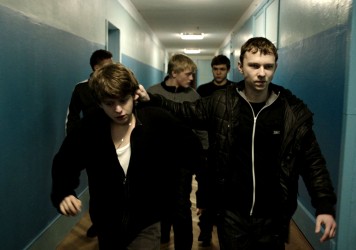
A warring couple reunite to find their missing son in this blunt drama from Leviathan director Andrei Zvyagintsev.
Andrei Zvyagintsev is a director who prides himself on handling meaty social themes within contemporary Russian settings. His tone is so forcefully ominous that regardless of whether his stories earn profundity, his films assume the air of parables.
Loveless, his fifth film (following in the mighty biblical footsteps of Leviathan), assaults the viewer with its bleakness from first sight and sound. The camera slowly circles a snow-clad tree to the tune of discordant piano thunking. If the title hadn’t already tipped us off (with all the discretion of the Hand of God), it would be clear from these moments that this is a loveless world.
Looking out at this through a window dotted with rain – like tears – is Alexsey, a 12-year-old boy defined by the sorrowful situation with his parents. They are divorcing, and not in a zen ‘conscious uncoupling’ style. His mother Zhenya (Maryana Spivak) is particularly hateful, berating husband Boris (Alexei Rozin) at every opportunity. In the aftermath of one screaming match, Alexsey goes missing.
The most intriguing and subtle aspect of a film defined by basic bluntness is the way that Alexsey’s disappearance is flagged, which is to say that it initially isn’t. Zhenya and Boris are shown pursuing their own interests, which happen not to be their child. They have sleepovers with their newfound lovers. In affluent, tastefully lit apartments they have virtually identical sex with their new partners as Mikhail Krichman’s camera glides towards sombrely bucking flesh. It’s so dark that sometimes faces are in full silhouette; their surroundings are sleek but morbidly hued.
Primary colours don’t exist in this film world, save for in a handful of visually memorable moments where orange jackets are dotted across a washed-out hillside. For the most part skies are grey, nature is dead, interiors are dim. In case anyone wasn’t already clear, this is not a happy film.
What does it all amount to? For all the loaded and atmospheric detailing, the answer is precious little. Smatterings of light observation posture as commentary. Our characters idly listen to the news and watch war breaking out in Kiev. The women smirk into their smartphones ignoring the chaos around them; the men refuse to learn and grow. A search party looks for the lost child, jabbing at the inherent tragedy of this event.
Uncontroversial points abound, but Zvyagintsev does not stitch the floating observations of his film to depth of character or story. The lead couple are cautionary avatars, who only pause from their one-note carping to relay a few expository chunks. The visual splendour of the film is sufficiently beguiling, but as the end comes into characteristically open-ended focus, it seems as though Zvyagintsev has been so preoccupied with creating symbolic resonance that he has jettisoned all that lies beneath.
Published 18 May 2017

Romanian New Waver Radu Muntean delivers a superlative twist on the murder mystery genre.

A bizarre choice of opening film for the 2017 Cannes Film Festival, but also an invigorating and impulsive one too.

By Anton Bitel
Miroslav Slaboshpitsky’s punishingly bleak tribute to silent cinema and modern disability is a great debut.